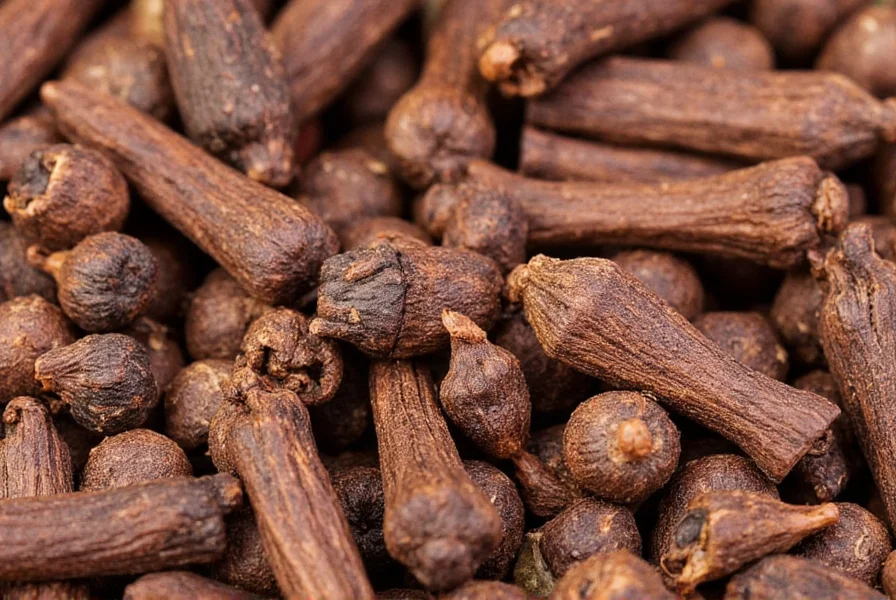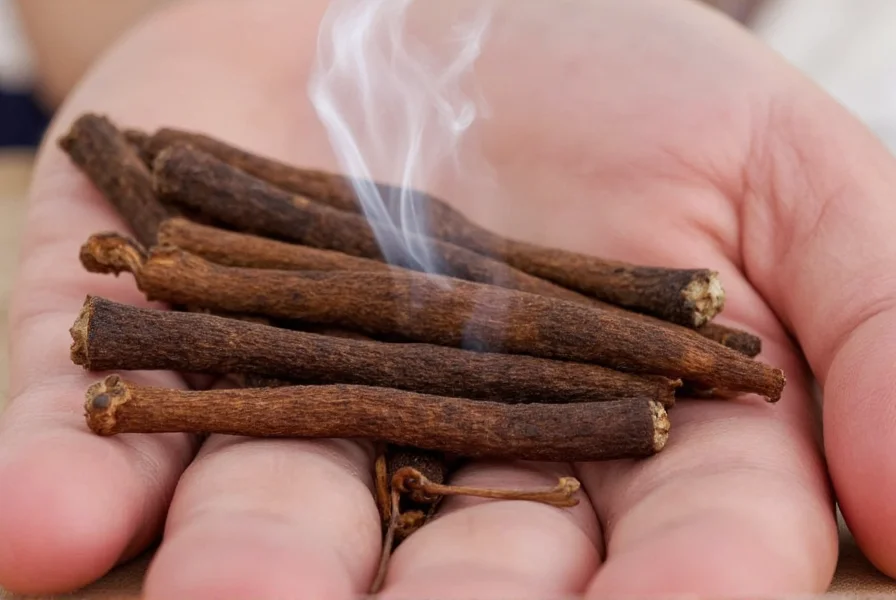While cloves are commonly enjoyed as a culinary spice and traditional remedy, smoking them presents different considerations. This comprehensive guide examines the practice of smoking cloves, separating fact from fiction while addressing important health implications.
Understanding Cloves and Their Traditional Uses
Cloves (Syzygium aromaticum) are aromatic flower buds from an evergreen tree native to Indonesia. For centuries, these potent spices have been used globally for:
- Culinary seasoning in both sweet and savory dishes
- Traditional dental pain relief (due to eugenol content)
- Medicinal applications in various cultural healing practices
- Aromatic purposes in religious and cultural ceremonies
The primary active compound in cloves is eugenol (approximately 70-90% of clove oil), which provides their distinctive aroma and flavor. When consumed orally in culinary amounts, cloves offer potential health benefits including antioxidant properties and anti-inflammatory effects.

Smoking Cloves: Common Practices and Context
Smoking cloves occurs primarily in two contexts:
- Kreteks: Indonesian cigarettes containing approximately 60-80% tobacco and 20-40% ground cloves. These have been culturally significant in Indonesia for over a century.
- Pure clove smoking: Less common practice where people smoke whole or ground cloves alone, often mistakenly believing it's safer than tobacco.
When cloves burn, the eugenol and other compounds undergo chemical changes that create different effects than oral consumption. The smoke contains particulate matter, carbon monoxide, and other combustion byproducts that affect the respiratory system.
Health Effects of Smoking Cloves
Research shows smoking cloves carries several health concerns:
| Effect Type | Short-Term Impact | Long-Term Risk |
|---|---|---|
| Respiratory | Immediate throat irritation, coughing, bronchial constriction | Chronic bronchitis, reduced lung function, potential COPD development |
| Cardiovascular | Temporary increase in heart rate and blood pressure | Elevated risk of cardiovascular disease with regular use |
| Oral Health | Mouth and gum irritation | Increased risk of oral cancers, gum disease, tooth discoloration |
The Centers for Disease Control and Prevention (CDC) notes that clove cigarettes deliver similar levels of tar and carbon monoxide as regular cigarettes. The misconception that clove smoking is safer than tobacco smoking represents a significant public health concern.
Scientific Research on Clove Smoke
Multiple studies have examined the effects of clove smoke:
- A 2011 study published in Respiratory Research found that eugenol in clove smoke causes temporary numbing of the throat, which may mask the harshness of smoke and lead to deeper inhalation and increased smoke consumption.
- Research in the Journal of Toxicological Sciences demonstrated that clove smoke contains aldehydes and other irritants that damage respiratory epithelium.
- The FDA banned flavored cigarettes including kreteks in the United States in 2009, citing concerns that flavored cigarettes appeal to youth and pose significant health risks.
Unlike culinary consumption where eugenol may offer benefits, inhaling burned eugenol creates different chemical compounds that irritate lung tissue and may cause inflammation.
Safety Considerations and Warning Signs
Individuals experimenting with smoking cloves should recognize these warning signs that indicate potential health problems:
- Persistent cough lasting more than 48 hours after smoking
- Difficulty breathing or shortness of breath during normal activities
- Chest tightness or pain
- Recurrent sore throat without other illness symptoms
- Nausea or dizziness during or after smoking
Immediate medical attention becomes necessary if experiencing severe respiratory distress, chest pain, or fainting episodes after smoking cloves. People with pre-existing respiratory conditions like asthma should avoid smoking cloves entirely.
Legal Status and Regulations
The legal status of clove smoking varies globally:
- United States: The Family Smoking Prevention and Tobacco Control Act of 2009 banned the sale of flavored cigarettes, including kreteks, though clove cigars remain technically legal (though rarely available).
- Indonesia: Kreteks remain culturally significant and widely available, though recent regulations have reduced clove content in commercial products.
- European Union: Most countries restrict or ban flavored tobacco products containing cloves.
- Other regions: Regulations vary significantly, with many countries adopting restrictions similar to the US approach.
Safer Alternatives for Clove Benefits
Those interested in experiencing clove benefits without smoking risks can consider:
- Culinary use: Adding whole or ground cloves to cooking provides flavor and potential health benefits without combustion risks.
- Dental applications: Clove oil diluted properly can offer temporary toothache relief (consult dentist first).
- Aromatherapy: Using clove essential oil in diffusers provides aromatic benefits without inhalation of smoke.
- Herbal teas: Steeping whole cloves in hot water creates a soothing beverage with none of the combustion byproducts.
These alternatives deliver the distinctive clove flavor and potential benefits while avoiding the significant health risks associated with smoking.
Conclusion
While cloves offer valuable culinary and potential medicinal benefits when used appropriately, smoking them introduces significant health risks comparable to tobacco smoking. The practice of smoking cloves, whether in kreteks or pure form, exposes users to harmful combustion products that can damage respiratory and cardiovascular systems. Understanding these risks helps individuals make informed decisions about substance use while recognizing safer alternatives for enjoying clove benefits.
Frequently Asked Questions
Can smoking cloves help with quitting tobacco cigarettes?
No, smoking cloves does not help quit tobacco and may actually prolong nicotine addiction. The numbing effect of eugenol can make smoking more comfortable, potentially increasing overall smoke consumption. Evidence-based cessation methods like nicotine replacement therapy or prescription medications offer safer, more effective quitting strategies.
Are clove cigarettes safer than regular tobacco cigarettes?
No, research shows clove cigarettes (kreteks) deliver similar or higher levels of tar, nicotine, and carbon monoxide compared to regular cigarettes. The eugenol in cloves creates a numbing effect that may encourage deeper inhalation, potentially increasing smoke exposure and associated health risks.
What immediate effects occur when smoking cloves for the first time?
First-time users often experience intense throat irritation, coughing fits, and a burning sensation in the airways. Some report dizziness or nausea due to the strong aromatic compounds. The numbing effect of eugenol may initially mask discomfort, leading to deeper inhalation than intended and potentially causing respiratory distress.
Does smoking cloves have any medicinal benefits?
No, smoking eliminates potential medicinal benefits of cloves. While oral consumption of cloves in moderation may offer certain health benefits, burning cloves creates harmful combustion byproducts that outweigh any potential advantages. The heat from smoking alters chemical compounds, transforming potentially beneficial substances into irritants and toxins.
How does clove smoke affect lung function compared to tobacco smoke?
Studies indicate clove smoke causes similar or greater impairment to lung function as tobacco smoke. The particulate matter and chemical compounds in clove smoke trigger inflammation and damage to lung tissue. Regular use can lead to decreased lung capacity, chronic bronchitis, and increased risk of respiratory infections, with effects comparable to traditional cigarette smoking.











 浙公网安备
33010002000092号
浙公网安备
33010002000092号 浙B2-20120091-4
浙B2-20120091-4